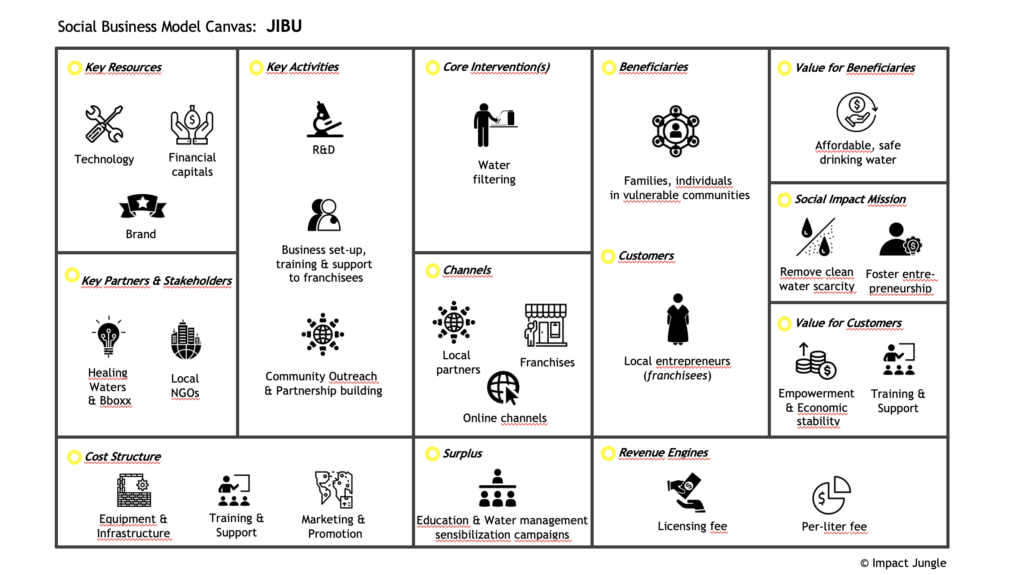
JIBU BUSINESS MODEL
“NAVIGATING WATERS” TOWARDS SOCIAL IMPACT
In the vast tapestry of Africa, stories of transformation often emerge from the most unexpected corners. As a matter of fact, driven by a spirit of resilience and tenacity, local communities often seek innovative ways to rewrite the narrative of possibility. This is what happened in 2012, when Jibu began running business in order to quench the thirst for both clean water and economic opportunity.
Founded in Uganda, the company now operates in 8 countries across Africa, with more than 150 franchises launched since its inception. In this article ,we set the stage for a deeper understanding of the challenges that Jibu seeks to address, as well as the transformative solutions it offers. We’ll also take a closer look at Jibu Business Model, in order to comprehend how this social enterprise manages to match impact and innovation while remaining financially viable.
Problem in context
At the heart of Jibu’s social impact mission lies the fundamental challenge of water scarcity. A challenge that shapes the daily lives of millions in Africa, casting a long shadow over the future of this continent.
According to recent research from the World Health Organization and UNICEF, approximately 2 billion people across the globe still lack access to safe drinking water. In most communities, access to clean water becomes a matter of life or death, as waterborne diseases claim countless lives each year. In this context, Sub-Saharan countries are among the most affected ones by such problem.
Here, water scarcity is indeed felt acutely by vulnerable populations, especially those living in rural areas. For them, reaching out to water sources represents a daily struggle, since it often requires long, arduous journeys with uncertain outcomes. Also, the burden of fetching water dramatically impact on girls and women, limiting their chances to access education, economic opportunities, and personal empowerment. Finally, looking at it through a broader lens, unsafe water systems lead to waterborne diseases costing millions of dollars each year to local authorities and healthcare providers.
Jibu Business Model
At the core of Jibu business model lies a decentralized franchise model, designed to both ensure access to clean water and empower local entrepreneurs. Thanks to its filtration technology, Jibu establishes water purification and bottling plants in underserved communities. These plants are located in strategic areas, serving as hubs to turn contaminated water into potable, safe and affordable drinking water.
Due of its decentralized production and distribution model, these plants are managed by local franchisees. As you may guess, this model allows Jibu not only to provide immediate access to clean water, but also to foster entrepreneurship, economic growth and job creation, region by region.
De-coding Jibu: Social Business Model Canvas
You are already familiar with the Social Business Model Canvas, right? Then let’s use this tool to further analyze Jibu’s Business Model.

Adapted from © Tandemic
